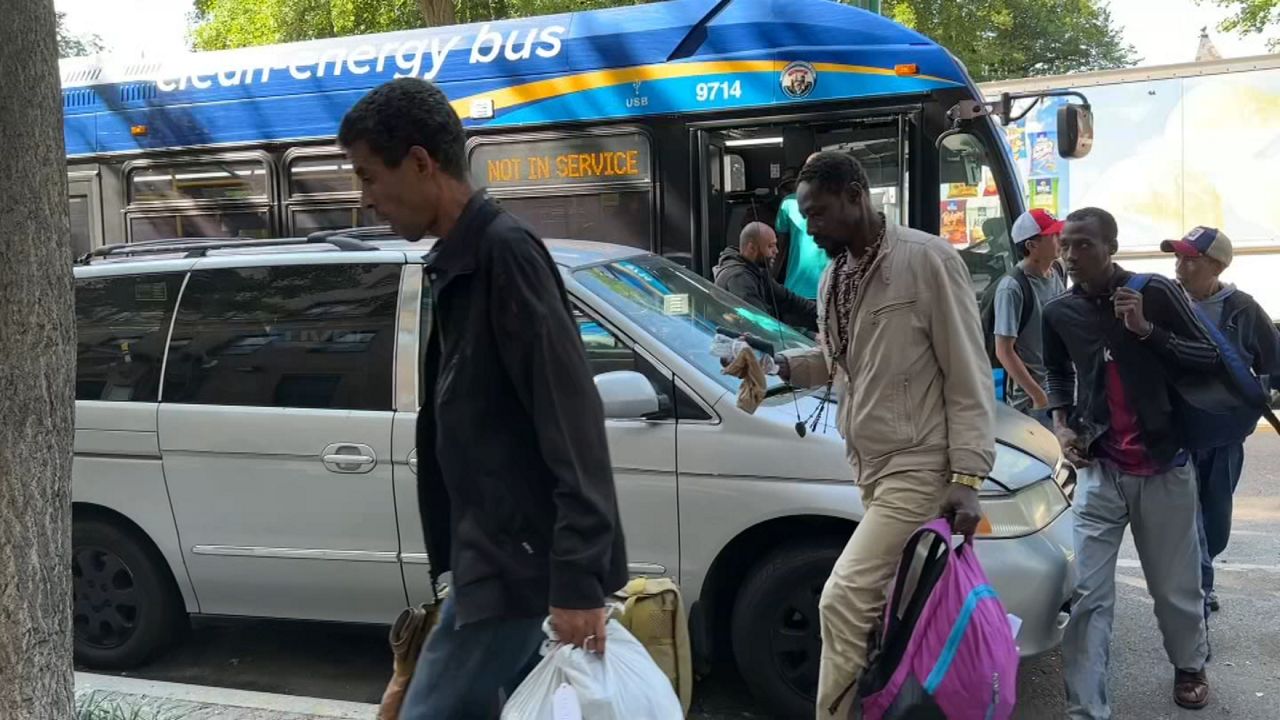New York state officials should take on a more careful accounting of how $1 billion in aid and resources for migrants is being spent, Republicans in the state Assembly on Monday said.
GOP lawmakers in a letter to Hochul administration officials called for clarification on how the money is being spent and allocated, primarily to aid New York City with the influx of people who arrived there in recent weeks.
The letter comes as New York state is grappling with the thousands of migrants who have come to New York state with the end of a pandemic-era immigration order.
The $1 billion, part of a state budget agreement in May, is about a third of what New York City Mayor Eric Adams is needed to help with the ongoing situation.
“It is imperative that your office ensures any funds allocated by the state, whether spent directly or indirectly, to relocate migrants to other counties be expended consistent with local laws and only in coordination with these counties," the lawmakers wrote in the letter, released by Assembly Minority Leader Will Barclay's office. "Considering numerous reports of migrant relocation efforts undertaken by the City of New York to upstate regions, members have requested information about current policies related to coordination between city officials and local municipalities.”
Gov. Kathy Hochul, meanwhile, has been seeking federal support. She has called on President Joe Biden's administration to grant an expedited work permit process for migrants who have asylum seeker status to be able to work while they are in New York.
Hochul has also sought resources from the Federal Emergency Management Agency to help provide shelter and other support for migrants.
New York state officials over the last month have simultaneously been scouting state-owned sites for migrant housing, including State University of New York campuses and former psychiatric centers.
Adams' administration in May began a voluntary program to move migrants to communities north of New York City in order to alleviate a housing crunch. The program has been met with legal challenges by some county officials.


